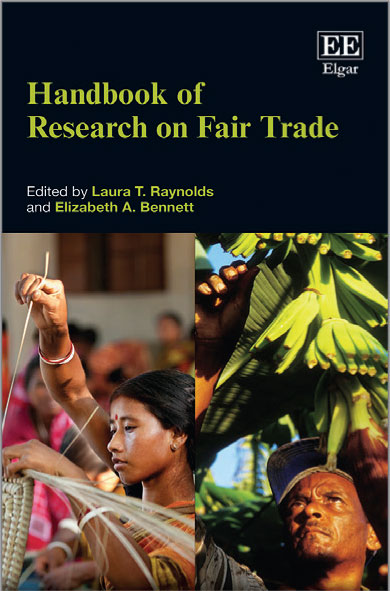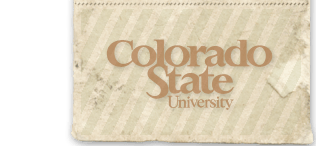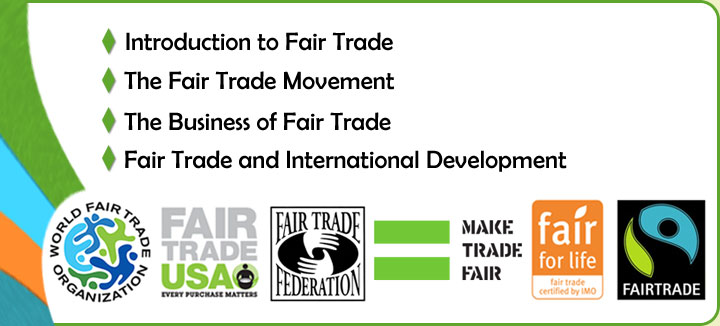Center for Fair & Alternative Trade
Handbook of Research on Fair Trade
 Winter 2015. The long awaited Handbook of Research on Fair Trade is now available! The first of its kind, this volume provides a synthetic overview and guide to cutting edge research, theory, and debates. Laura Raynolds and Elizabeth Bennett (eds) assemble 30 chapters by the world’s foremost fair trade scholars. The Handbook serves as both a comprehensive overview and in-depth guide to dominant perspectives and concerns. Chapters analyze the rapidly growing fair trade movement and market, exploring diverse initiatives and organizations, production and consumption regions, and food and cultural products.
Winter 2015. The long awaited Handbook of Research on Fair Trade is now available! The first of its kind, this volume provides a synthetic overview and guide to cutting edge research, theory, and debates. Laura Raynolds and Elizabeth Bennett (eds) assemble 30 chapters by the world’s foremost fair trade scholars. The Handbook serves as both a comprehensive overview and in-depth guide to dominant perspectives and concerns. Chapters analyze the rapidly growing fair trade movement and market, exploring diverse initiatives and organizations, production and consumption regions, and food and cultural products.
For More Information and To View the Table of Contents
Download the Introduction Chapter for Free
Fair trade is now commonly discussed by social scientists, business people, development practitioners, movement activists and consumers. Conceptually, fair trade refers to a critique of the historical inequalities inherent in international trade and to a belief that trade can be made more socially just. In practice, fair trade comprises various initiatives that challenge global inequalities and seek to create more egalitarian links between producers and consumers.
The Handbook of Research on Fair Trade edited by CFAT Director Laura Raynolds and Associate Elizabeth Bennett was commissioned by Edward Elgar Publishing to provide a synopsis and appraisal of the field of fair trade studies. This volume analyzes the key domains of fair trade research, focusing in four thematically organized sections on: (1) Introduction to Fair Trade, (2) The Fair Trade Movement, (3) The Business of Fair Trade, and (4) Fair Trade and International Development. Providing a broad overview, the Handbook sheds light on diverse production and consumption regions, divergent initiatives and organizations, and numerous fair trade commodities (including coffee, tea, flowers, wine, crafts, etc…).
Thirty original chapters analyze key topics in fair trade, illuminating major theoretical and empirical issues; assessing existing research; evaluating central debates; and identifying critical unanswered questions. Entries are written by preeminent fair trade scholars from around the world and from across the social sciences—from sociology, political science, geography, economics and anthropology as well as from business and international development fields. The Handbook is written for those new to fair trade as well as those well versed in this area; for those scholars interested primarily in theoretical issues and for those activists and practitioners focused largely on pragmatic solutions to today’s pressing problems.
For More Information and To View the Table of Contents

